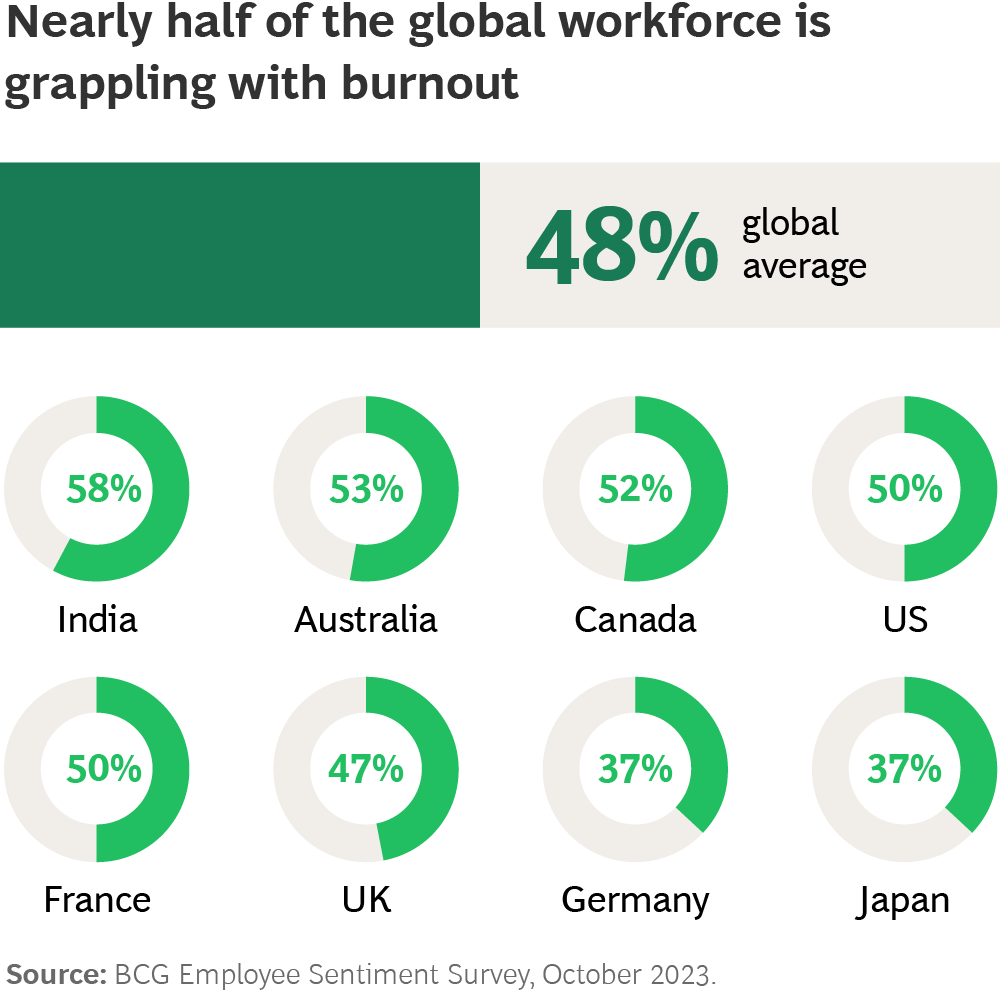
New report sheds light on the correlation between burnout, inclusion

Nearly half of employees across the world are suffering from burnout, according to a new report, which revealed how belongingness at work influences mental health.
The report from the Boston Consulting Group (BCG) polled 11,000 desk-based and frontline workers in Australia, Canada, France, Germany, India, Japan, the United Kingdom, and the United States.
It found that on average, 48% of employees from these countries, are grappling with burnout.
India reported the highest levels of burnout, with 58%, while Japan and Germany recorded the lowest levels with both 37%.

According to the report, burnout is "highly correlated with low feelings inclusion," which is demonstrated by higher levels of burnout among employee subgroups who feel less included at work.
Women, members of the LGBTQ+ community, people with disabilities, and deskless workers reported up to 26% higher burnout than other employee groups.
They were also more likely to report "lower inclusion" than employees who were in majority groups or were desk-based, according to the report.
"Essentially, employees who are more burned out feel less included at work," it noted.
Gabrielle Novacek, a managing director and partner at BCG, underscored that inclusion is an ongoing process that shouldn't end at recruitment.
"It requires listening to workers on an ongoing basis and addressing their pain points. It must address both the employee offer and the daily experience of employees with their managers," said Novacek, who is also a co-author of the report, in a statement.
According to the report, there are four key areas that signal inclusion levels in the workplace, including:
Novacek said organisations can focus on these four key areas to identify where to invest and innovate to improve feelings of inclusion and reduce burnout.
"Establishing programmes to meet these needs will help employers avoid the costs associated with burnout, be able to attract talent, and reap the benefits of a thriving workforce," she said.